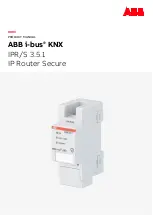
OSPF Sham-Link Support for MPLS VPN
Glossary
16
Cisco IOS Release 12.2(8)T
Glossary
BGP—Border Gateway Protocol. Interdomain routing protocol that exchanges reachability information
with other BGP systems. It is defined in RFC 1163.
CE router—customer edge router. A router that is part of a customer network and that interfaces to a
provider edge (PE) router. CE routers are not aware of associated VPNs.
CEF—Cisco Express Forwarding. An advanced Layer 3 IP switching technology. CEF optimizes
network performance and scalability for networks with large and dynamic traffic patterns.
OSPF—Open Shortest Path First protocol.
IGP—Interior Gateway Protocol. An Internet protocol used to exchange routing information within an
autonomous system. Examples of common IGPs include IGRP, OSPF, and RIP.
LSA—link-state advertisement. A broadcast packet used by link-state protocols. The LSA contains
information about neighbors and path costs and is used by the receiving router to maintain a routing
table.
MPLS—Multiprotocol Label Switching. Emerging industry standard upon which tag switching is
based.
PE router—provider edge router. A router that is part of a service provider network connected to a
customer edge (CE) router. All VPN processing occurs in the PE router.
SPF—shortest path first calculation.
VPN—Virtual Private Network. A secure IP-based network that shares resources on one or more
physical networks. A VPN contains geographically dispersed sites that can communicate securely over
a shared backbone.
VRF—VPN routing and forwarding instance. A VRF consists of an IP routing table, a derived
forwarding table, a set of interfaces that use the forwarding table, and a set of rules and routing protocols
that determine what goes into the forwarding table. In general, a VRF includes the routing information
that defines a customer VPN site that is attached to a PE router.

































